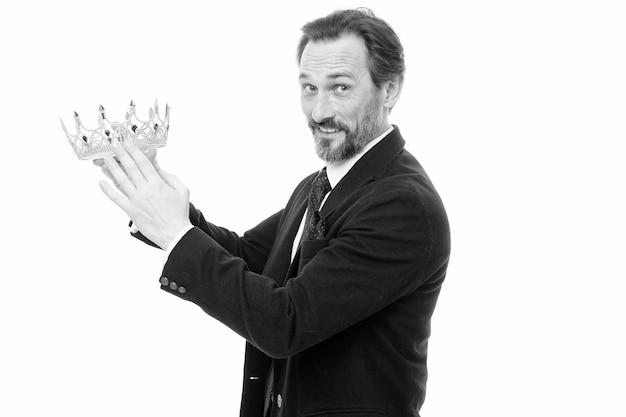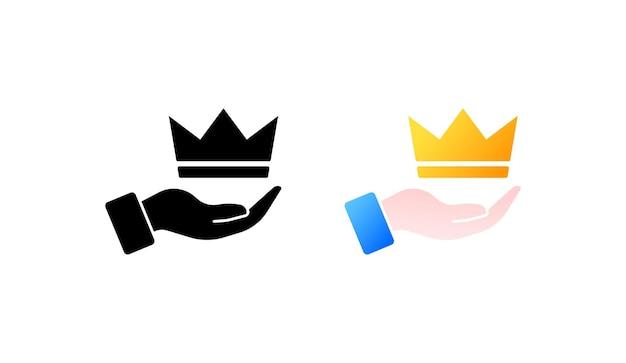Monarchy, a system of government where a king or queen serves as the head of state, has existed for centuries, spanning across various periods of history. But what exactly does monarchy mean? And is it limited or unlimited in power?
In this blog post, we will delve into the concept of monarchy, exploring its different types and shedding light on whether it is characterized by limitations or operates without constraints. We will examine examples of limited monarchies, such as one that existed in England, as well as discuss the power held by monarchies in general. Additionally, we will explore how the power of a monarchy can be curtailed and the role of the monarchy in contemporary societies.
So, if you’ve ever been curious about the extent of a monarchy’s authority or wondered about the varying forms it can take, join us on this journey as we unravel the intricate nature of this age-old system of government.

Is a Monarchy Limited or Unlimited
In the world of governance, one question that often arises is whether a monarchy is limited or unlimited in its powers. The answer, as with many things in life, is not so black and white. Let’s dive deeper into the complexities of this subject and explore the nuances of monarchies.
Monarchy: More than Just a Crown
Monarchies have been a prominent form of governance throughout history, with kings and queens ruling over their realms. However, the true extent of a monarch’s power varies vastly depending on the country and timeframe.
The Unlimited Power Stereotype
When we think of an absolute monarchy, the image that comes to mind is one of an all-powerful ruler, with the ability to do as they please. This stereotype might make for juicy historical novels and binge-worthy television dramas, but it’s not always an accurate portrayal of reality.
Modern Monarchy: Limited Power Reigns
In the modern world, most monarchies have evolved into constitutional monarchies, where the power of the monarch is limited by a constitution or other governing laws. The monarch’s role is generally ceremonial, with their duties revolving around representing the country and unifying its people.
Balancing Act in Constitutional Monarchies
Constitutional monarchies strike a delicate balance between tradition and democracy. While the monarch may no longer possess absolute power, they still play a vital role in the functioning of the government. They act as a symbol of stability and continuity, preserving the nation’s heritage while staying within the confines of a democratic system.
Checks and Balances in Practice
The power limitations faced by monarchs in constitutional monarchies are often seen through the lens of a system of checks and balances. The legislative, executive, and judicial branches of government all act as a counterweight to maintain a healthy separation of powers. This ensures that decisions are not solely in the hands of the monarchy but are made collectively and in the best interest of the people.
Winds of Change: Shifting Perspectives
It’s worth noting that the concept of monarchy is not set in stone. It has evolved over time, adapting to societal changes and demands. As societies become more modern and progressive, the role of the monarchy may continue to evolve, potentially leading to a further reduction in their powers.
Conclusion: Where Does the Crown Stand
So, is a monarchy limited or unlimited? The answer depends on the type of monarchy and the era in question. While absolute monarchies may have once held immense power, most modern monarchies have adopted a constitutional framework that limits their authority. Nonetheless, even in constitutional monarchies, the position and influence of the monarch remain significant, albeit in a more symbolic and ceremonial capacity.
In the end, the role of the monarchy is a fascinating and complex topic that deserves further exploration. By understanding the dynamics of different monarchies and recognizing their evolution, we can gain a deeper appreciation for this unique form of governance.

FAQ: Is a Monarchy Limited or Unlimited
Introduction:
Welcome to our comprehensive FAQ guide on the topic of monarchy. In this section, we will address common questions and clarifications regarding the limitations and types of monarchy. Whether you’re a history enthusiast or simply curious about different forms of government, this guide will provide you with valuable insights in an engaging and entertaining manner.
What Period is Monarchy
Monarchy has been a prevalent form of government throughout history, spanning various periods. From ancient civilizations like Egypt and Mesopotamia to modern-day monarchies, this form of rule has withstood the test of time.
What Monarchy Means:
Monarchy refers to a system of government where a single individual, usually referred to as a monarch or king, holds supreme authority over a nation. This individual typically inherits the position through bloodline or dynastic succession.
What are the 3 Types of Monarchy
There are three main types of monarchy:
1. Absolute Monarchy:
In an absolute monarchy, the monarch holds unlimited power and authority. They have the final say in all matters of governance, without any checks or balances from other branches of government.
2. Constitutional Monarchy:
Unlike absolute monarchy, a constitutional monarchy operates under a system where the monarch’s powers are limited by a constitution or set of laws. While the monarch may still have ceremonial roles, the actual governing power is held by elected officials.
3. Limited Monarchy:
Similar to constitutional monarchy, a limited monarchy imposes restrictions on the monarch’s powers. However, the limitations placed on the monarch may not be as extensive as those found in a constitutional monarchy.
What is an Example of Limited Monarchy
One notable example of a limited monarchy is the United Kingdom. While the British monarch retains certain ceremonial and symbolic roles, the majority of political power rests with elected officials and the parliamentary system.
What are Examples of Monarchy
Throughout history, various examples of monarchies have existed. Some prominent examples include:
- United Kingdom
- Sweden
- Japan
- Saudi Arabia
What is a Limited Monarchy Quizlet
A limited monarchy Quizlet is a learning resource that provides information and study materials about limited monarchies. It helps users understand the concept, its historical context, and its application in different countries.
Where Was Limited Monarchy
Limited monarchies have been implemented in different regions across the globe. Countries like the United Kingdom, Sweden, and Japan have adopted some form of limited monarchy in their governance structure.
Who Rules in a Limited Monarchy
In a limited monarchy, the monarch retains their position as the head of state, but the day-to-day governance is carried out by elected officials, such as a prime minister or a parliament.
What Types of Government are Limited
Apart from limited monarchies, other forms of government can also have limitations on the ruling power. Some examples include:
- Constitutional republics
- Democratic governments with checks and balances
- Parliamentary systems with elected officials
What are the Two Types of Monarchy
The two main types of monarchy are absolute monarchy and constitutional monarchy. These forms of government differ in the level of power and authority granted to the monarch.
What Types of Government are Unlimited
Unlimited forms of government encompass systems where the ruling power is not restricted or bound by other branches or laws. Examples include:
- Autocracy
- Dictatorship
- Totalitarian regimes
What Type of Government is a Monarchy
Monarchy represents a unique form of government where a single individual, the monarch, holds supreme authority. Depending on the type, such as absolute monarchy, constitutional monarchy, or limited monarchy, the power and authority of the monarch can vary.
Who Wanted a Limited or Constitutional Monarchy
Throughout history, various individuals and movements have sought the establishment of limited or constitutional monarchies as a means to balance power and provide a more inclusive system of governance. Notable examples include the Glorious Revolution in England and the constitutional reforms in Japan during the Meiji era.
Does Monarchy Have Limited Power
While some forms of monarchy, like constitutional and limited monarchies, impose limitations on the ruler’s powers, absolute monarchies generally have unrestricted authority.
How Can You Limit the Power of a Monarchy
To limit the power of a monarchy, constitutional frameworks, laws, and checks and balances can be established. These measures aim to ensure a fair and accountable system where the ruler’s authority is regulated.
Is Japan a Monarchy
Yes, Japan is a constitutional monarchy. The Emperor of Japan serves as the ceremonial figurehead, while the elected officials are responsible for the day-to-day governance.
What Power Does the Monarchy Have
The power of a monarchy varies depending on the type. In constitutional and limited monarchies, the power is significantly limited, while in absolute monarchies, the ruler typically holds supreme authority.
What is the Role of the Monarchy
The specific roles of a monarchy can differ based on cultural and historical contexts. However, common roles include representing the nation, diplomacy, national cohesion, and preservation of cultural heritage.
Is a Monarchy Limited
In general, a monarchy’s level of limitation depends on the type of monarchy. While absolute monarchy has no inherent limitations, both constitutional and limited monarchies impose restrictions on the ruler’s powers.
Is There Limited Monarchy in England
Yes, the United Kingdom has a limited monarchy system in place. While the British monarch retains certain ceremonial and symbolic roles, the governance is primarily carried out by elected officials and parliamentary systems.
How is a Limited Monarchy Limited
A limited monarchy can be limited through several means, including a constitution, laws, and established checks and balances. These mechanisms ensure that the powers of the monarch are restrained and subject to the rule of law.
Conclusion:
We hope this comprehensive FAQ section has shed light on the limitations and types of monarchy. From absolute monarchies to constitutional and limited monarchies, each form of government offers unique dynamics that have shaped history and society. If you still have unanswered questions or seek additional information, feel free to dive deeper into the fascinating world of monarchy.